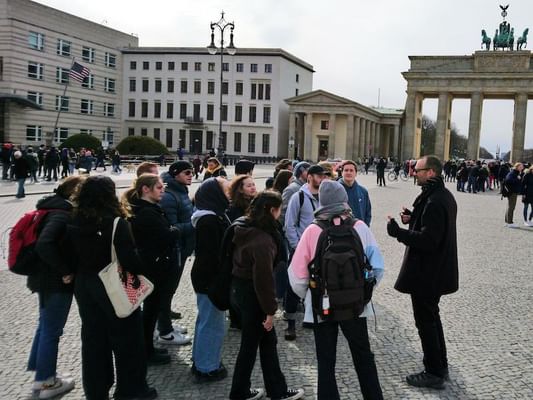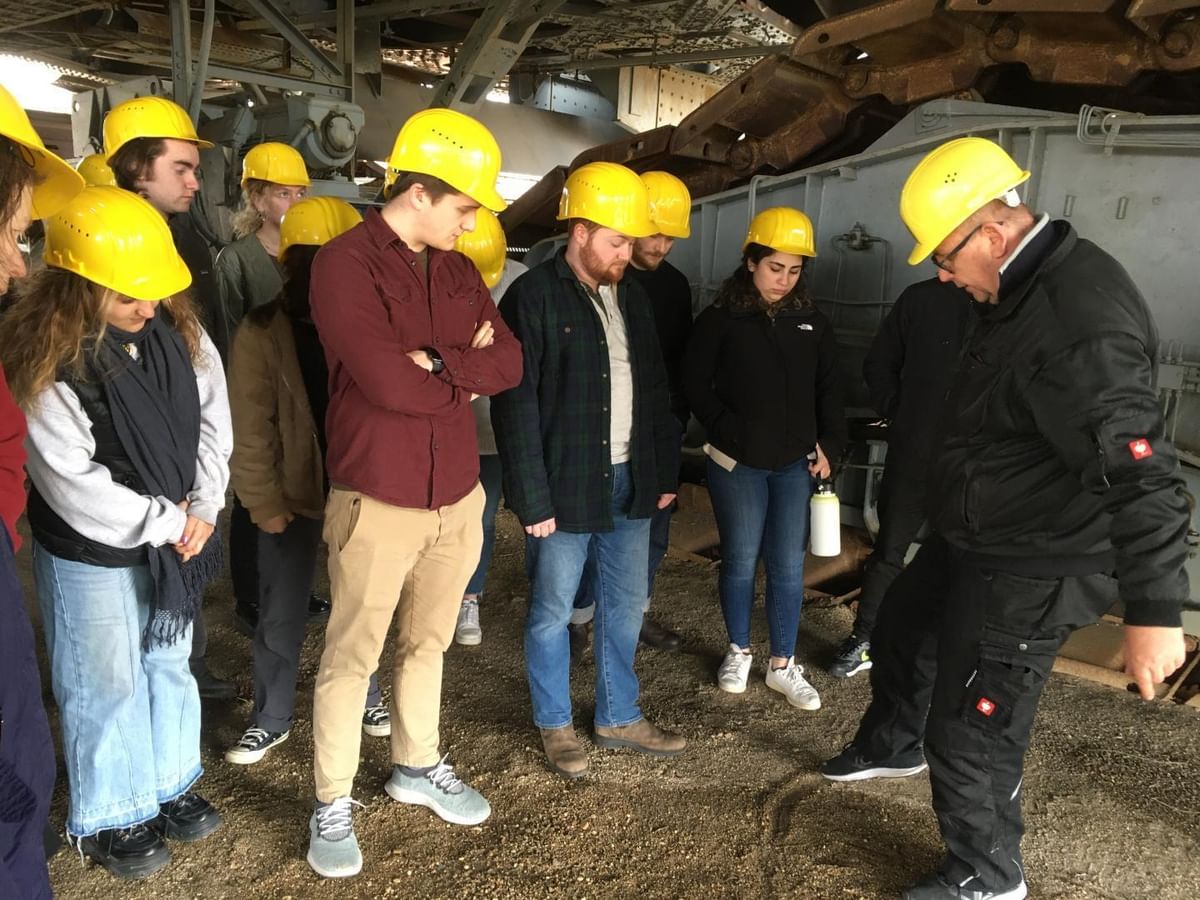- Undergraduate
Bachelor's Degrees
Bachelor of ArtsBachelor of EngineeringDual-Degree ProgramUndergraduate AdmissionsUndergraduate Experience
- Graduate
Graduate Experience
- Research
- Entrepreneurship
- Community
- About
-
Search
All Thayer News


Off-Campus Programs Return to a New Normal
May 18, 2022 | Dartmouth News
After six consecutive terms of a pandemic-related hiatus that began in March 2020, undergraduates are once again studying abroad through programs sponsored by the Frank J. Guarini Institute for International Education.

Students on the "Green City" foreign study program in Berlin — a combined German studies and engineering program — get a tour this spring near the Brandenburg Gate. (Photo by Claudio Schöneberger)
New 'Green City' Program in Berlin
This spring the Department of German Studies and Thayer School of Engineering have teamed up to offer "Green City, Sustainable Engineering and Full-Immersion German in Berlin" — a pilot program blending study in German language and culture with the opportunity to earn engineering credits. The first-of-its-kind program is co-led by Associate Professor of German Petra McGillen and Professor of Engineering Petra Bonfert-Taylor.
The Green City program is one example of how Dartmouth faculty have been collaborating on new interdisciplinary programs to complement the curriculum and build on traditional FSP and LSA offerings.
"Faculty are continually innovating with off-campus programs to ensure they are relevant and responsive to the academic interests of Dartmouth students," Delmont says.
The push for the combined program in German and engineering came from the students themselves, McGillen and Bonfert-Taylor say.
"Engineering students often can't go on foreign study programs because the major is packed with requirements, and to take a term without any engineering credits is really difficult," says Bonfert-Taylor. "Students kept coming to me to ask, 'Can't you start a program that combines a foreign study experience with engineering?' And the same students came to Petra McGillen to say, 'We're interested in German, but we need engineering credits, can't you organize something?' So we did some surveys and found that there's a great need and desire for a program like this."
In Berlin, students live with host families and have the choice of three out of four courses: a fast-track German language course, a course in German history and culture, and, for engineering credit, "Introduction to Environmental Engineering" and "Sustainable Urban Systems."
They also participate in field trips and other enrichment activities that help showcase the importance of language and cultural understanding to effective engineering solutions.

Students on the "Green City" FSP this spring tour a former lignite coal mining site in Germany and hear from the former operator of a giant excavator. (Photo by Petra McGillen)
On a day-trip to Görlitz — a town in the former East Germany, in a region shaped by lignite coal mining—students toured the surviving pre-World War II architecture and visited a remediated mine site, where they spoke with a former miner who had lost his livelihood in the transition to cleaner energy.
"Hearing our guide speak with so much nostalgia about his work was incredible," program participant Stephen Veatch '24 says of the experience. "It was so moving to see how people can feel left behind in the transition from one predominant energy source to alternatives."
"It was one of those moments when German culture and political history and sustainable engineering topics came together in this really eye-opening way," McGillen says. "The students immediately understood that in any energy transition you need to be aware of the profound social implications and find ways to mitigate them."
For contacts and other media information visit our Media Resources page.
